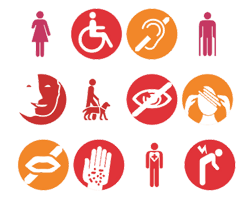General information
- Available to
-
- Initial course
- Resumption of training
 Visit the handicap portal
Visit the handicap portal
How do markets work? How do firms make strategic choices? What determines demand and cost structure ?
In the 1st year, Students attend a rigorous academic program in the different economic disciplines and quantitative techniques for social sciences. The common core courses allow them to deepen their knowledge and the elective courses allow students to build up their careers projects, taking into account the specializations in the second year of the master’s programs.
In the second year, the master in Economics of Markets and Organizations program combines a solid training in industrial organization, regulatory economics, and econometrics that give students a real expertise in the analysis of strategic aspects of a market, the identification of the determinants of the firms’ economic performance in a market, and the evaluation of policies aimed at improving the market efficiency.
Toulouse School of Economics
1 Esplanade de l'Université
31080 Toulouse Cedex 6 France
Téléphone : +33 (0)5 61 12 85 04
Office : T13
E-mail : scoltsem2@ut-capitole.fr
Contact Admissions :
Téléphone : +33 (0)5 67 73 27 87
E-mail : tse-admissions@ut-capitole.fr
Site : tse-fr.eu
Admission first year:
Admission second year:
Compulsory:
2 electives:
Compulsory:
4 electives:
Compulsory courses:
One course among 4:
Non-Mandatory:
Compulsory courses:
Four courses among 8:
* Course shared with M2 Economic Theory and Econometrics. Upon acceptation by the two Master Directors (ETE and EMO)
** Students who will have followed the course " Professional Development" in M1 in 2019-2020 will be exempted.
*** Upgrade course in Mathematics, open to students in M1 and M2 of TSE.
**** Course shared with M2 Environmental and Natural Resources Economics (5 EMO students maximum on the 1st come/1st served basis)
***** 5 students of the ERNA Master are authorized by the EMO Master Director to attend the "Industrial Organization of the Food Industry" course (on the 1st come/1st served basis).
Practicing a sport or a musical activity within the University orchestra during the year can give you bonus points. Only points above 10/20 are taken into account.
To apply to this master, select on eCandidatures platform:
For more details about application process, we invite you to visit our Admissions section
